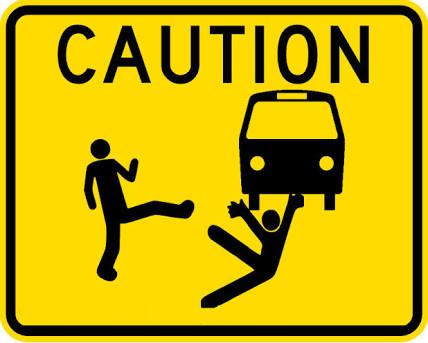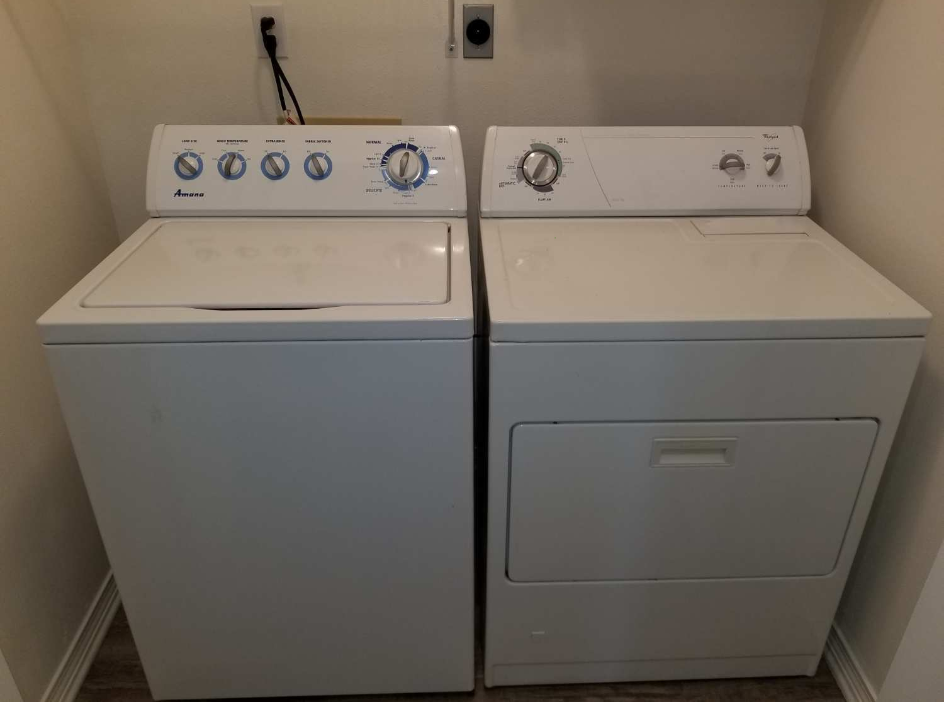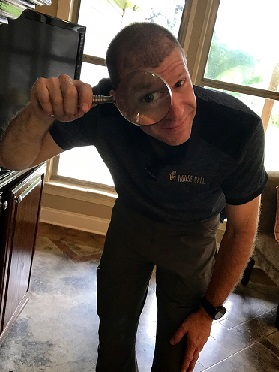Sometimes what we say isn’t as important as how we say it.
Unknown Author
We’ve all run into it in our business. We provide some information and advice to our clients and recommend that they enlist the help of a professional who has expertise in the specific field that they need. And then it happens.
Wham! You’re rolled over by a bus that you didn’t even see coming!

There you were, minding your own business, trying to assist your clients. You recommended that they call a licensed electrician to evaluate and repair all the electrical problems that you discovered during your home inspection. Then, here comes the electrician (who, incidentally, is at the client’s house today making money simply because you told them to call him…) to roll you under the bus.
I can’t believe your home inspector didn’t tell you about this!
I’m not sure how anyone with eyes could’ve missed this!
It’s the reality of any service industry job. The “professionals” that come behind you are always going to try to build up their reputation and standing in the eyes of their clients. Often, the easiest way to do this is by tearing down the reputation of the other service providers that came before them.
Sad but true: it’s easier to quickly bad-mouth another service provider than it is to take the time and expend the energy to become knowledgeable and well-versed in your chosen industry. It’s easier to call someone else an idiot than it is to educate yourself so that you aren’t one as well.
Never argue with an idiot. They will drag you down to their level and beat you with experience.
Mark Twain
Knowing this is likely to happen, it’s incumbent upon us as home inspection professionals to plan for the inevitable. We know they’re gonna roll us under the bus, so why not be ready for it?
A good example of this situation happened on a recent inspection. The home was about 15 years old and had been fairly well maintained. I went through the home and followed my normal home inspection routine, recording the visible deficiencies and compiling my report.
Obviously, as the home was older, there were many items that didn’t comply with the most recent versions of the codes. As is my normal practice, I point out these items in my inspection report, explain that the new homeowners should consider upgrading these systems to comply with the most recent safety standards and recommended evaluation by a qualified, licensed contractor; in this particular case, an electrician.
Now I know what you’re thinking: code requirements can be a slippery slope for home inspectors. The vast majority of us are not certified code inspectors, and all Standards of Practice preclude code items. But if you stop to think about it, almost everything we inspect for has its basis in the code.
- 14AWG wires installed in a 30A breaker? That’s a code issue.
- Spanning a 24’ living room ceiling with 2” x 4” ceiling joist? That’s code too.
- TPR drain line running uphill, ending in the soffit and piped using a garden hose? You guessed it, code again.
But keeping track of all these codes can really be a chore. Each county, city and municipality have jurisdiction over code enforcement in their area. Each area gets to choose what version (and what parts) of the code they enforce. And each one has their own code official (known as the Authority Having Jurisdiction or AHJ) who makes the ultimate call on what is and what’s not required in their jurisdiction. I work in an area that spans about 6 different code enforcement areas, and each one enforces different year versions and different parts of the code.

With updates to the codes coming regularly, it’s almost impossible for a home inspector to keep up with these constantly shifting standards. All this conflicting information can leave us in a tough spot when trying to reference code during our home inspections.
My solution is that I don’t use the word “code” in my home inspection report. As I’m not a certified code inspector, I prefer to use the phrase “current safety standards,” which is enough to get my meaning across to my clients without stepping on the toes of the local AHJ. I try to inspect to the most recent version of the codes (that I’m familiar with) and report on the same.
For example, the new 2020 National Electrical Code requires some 240V outlets to be GFCI protected. Even though the most forward-thinking jurisdictions probably won’t be adopting the new NEC for a few years, I’m going to start calling it out when a 240V dryer outlet is not GFCI protected.

I know that by doing this, I’m opening myself up for attack from the electricians that are coming behind my work. Some of them are going to say that I don’t know what I’m taking about, while others are going to seize on this as an opportunity to disparage the rest of my work, looking for ways to build up their reputation by tearing mine down.
I’m OK with that.
I know it’s coming.
It’s all part of the C.D.B. (cost of doing business.)
But just because I know it’s coming doesn’t mean I’m going to take it lying down. I’m always up for a good battle of wits, especially when I know that I’ve got the high ground.
Knowing that a negative response is likely to be coming from the seller’s electrician, it pays to have a canned response at the ready. For situations like this, I always respond with an email worded something like this:
Hello Mr. Electrician,
Thanks for your interest in my work as a professional home inspector. I understand that we have a difference of opinion regarding this matter. Obviously, your electrical license supersedes my home inspection license, which is why I recommended that my clients contact you in the first place.
As we are of a different opinion regarding the proper way to deal with this situation, I have an idea on how we can resolve this matter. If you’re sure that this house will be safer without the installation of the GFCIs that I recommended, then I recommend writing a letter to your client to address their concerns. I recommend using a piece of paper with your company letterhead and writing them a note saying that you believe that their house is safer without GFCI outlets than it is with them. I recommend signing and dating it, and putting your phone number and license number on it as well, in case they have any questions for you. It may be a good idea to include your insurance company’s information on there as well, just in case any future problems arise.
I’m certain that once you provide this letter to your clients this will end any and all discussion on this matter.
Sincerely, Joe Home Inspector
Amazingly enough, I have yet to receive any reply back to that particular letter…
Sometimes, the best defense is a good offense.
Unknown Author
It can be tricky for us, as professional home inspectors, to always know what we should call out and what we should simply leave alone. I prefer to err on the side of caution, calling out some things that many inspectors simply don’t want to address. I do this, knowing that I’m going to get some blow-back from the seller, their contractor, their agent (and sometimes even my client’s agent.)
Knowing that a certain challenge is coming, I will often go on the offensive, launching a preemptive attack on my detractors by offering these often-used words of advice to my clients:
Mr. & Mrs. Home Buyer,
It’s my job to inspect your house as well as I can, and I take my job very seriously. I’m offering these recommendations to you based on my general home inspection knowledge. I’m going to recommend that you hire a contractor to address these items, assuming that the contractor has more specific knowledge of their industry than I have.
There will be times when your contractor is going to disagree with my assessments. However, I believe it is my responsibility to provide you with this information. I would rather tell you these things and have your electrician (or whatever tradesperson) tell you that your home inspector is an idiot than not tell you about it and something bad ends up happening to your house and your family.
I’m OK with getting called an idiot all day long.
It’s my job to protect you and your family, not to try and protect my feelings.

You know it’s coming. Idiots will always try to drag you down to their level. Don’t get caught up in their little game. Be ready for what’s coming and prepare (yourself and your clients) accordingly.
An ounce of prevention is worth a pound of cure.
Benjamin Franklin
(Please note that I’m not advocating for everyone to start doing their home inspections the way that I do; that’s not what The Home Inspectors Network is about. I’m simply trying the provide information and education to the inspection community. By providing a glimpse “behind the curtain” of how I run my business, I hope to challenge you to think about how you operate your own business, and maybe prompt you to make some changes that will benefit you and your clients.)
Like our stuff? CLICK HERE to join our email list. No spam. We promise.
Want to be an Influencer in Your Field? Share This Post!
Thanks, Joe


